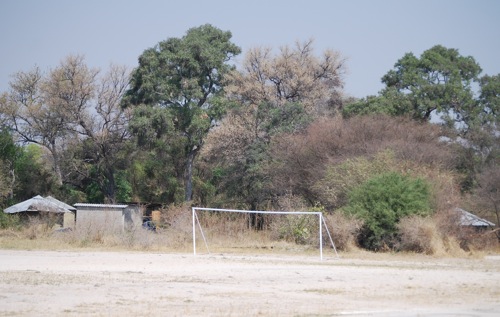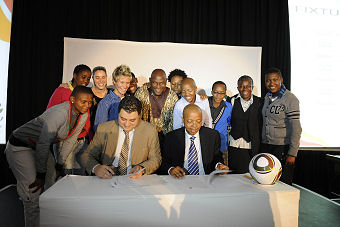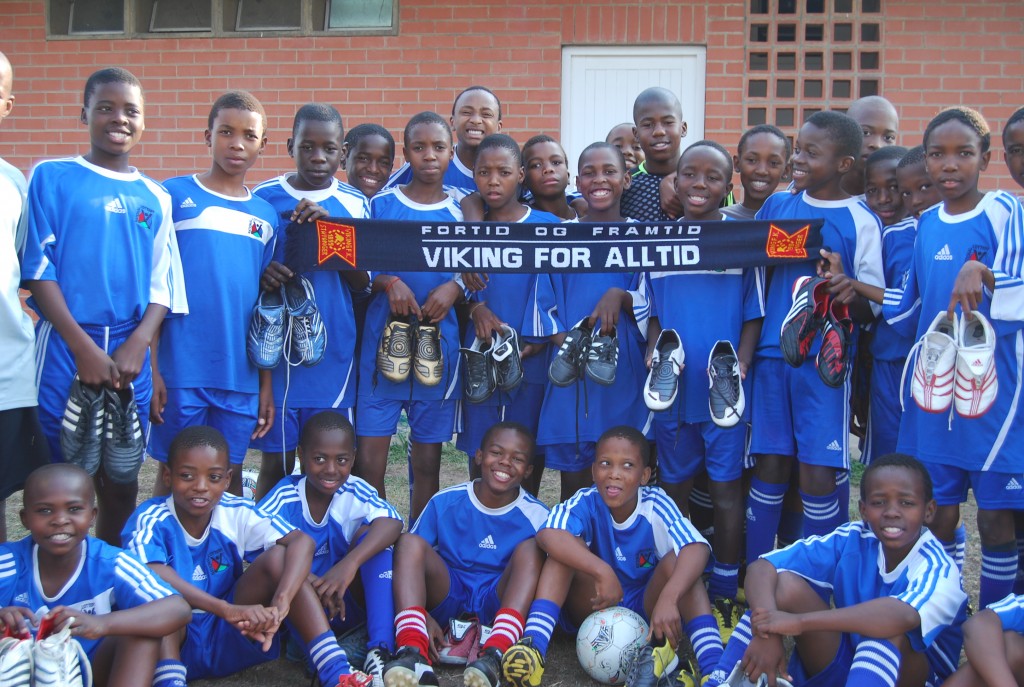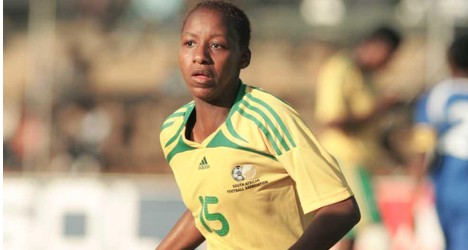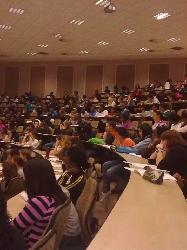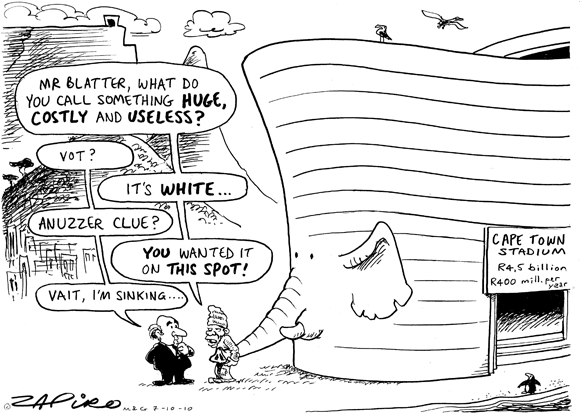
The stadium operator SAIL STADEFRANCE announced yesterday that it is pulling out of the 30-year lease agreement with the City of Cape Town to manage the 4.5 billion rand ($600 million) World Cup stadium at Green Point.
SAIL chairman Morne du Plessis explained that “Shareholders were not prepared to enter the lease under circumstances that projected substantial losses.” Since PSL matches in Cape Town rarely draw more than a few thousand spectators, and rugby already has an excellent stadium at Newlands, local taxpayers must now shoulder the World Cup debt burden long into the future.
For further reading, see my academic journal articles from 2007 and 2008 (free download), in which I argued that in the long run the monumental Cape Town Stadium — built at FIFA’s insistence — would not benefit South African football, but instead would privatize profits (construction companies anyone?) and socialize debt.
